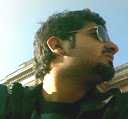
PTI sells out (to survive?)
The PTI is currently experiencing a learning curve and while in the medium to long run, this transformation might bring political gains the party's larger agenda of providing an alternative option looks to have been shelved.
Tehreek-e-Insaf makes for a great lesson in how political culture and norms interact with, and effect, political practice. For an urban polity that has yearned long and hard for an alternative political option, the PTI is still some distance from providing a credible third-way - yet subtle changes in its approach towards politics suggests that it might still threaten, if not displace entrenched political interests.
Starting off as a party aimed at “bringing justice”, a much bandied but rarely defined term, it suffered from a lack of institutional structure, a reliance on the personal charm of Imran Khan, and a serious dearth of grassroots support. Most of these problems still persist, but at various points over the last two to three years, the PTI has slowly begun to undergo changes, which it hopes will keep it relevant. Unfortunately, none of these subtle, yet important changes, even remotely suggest the creation of an alternative form of political praxis. Basically, the PTI has quietly fallen in line with the rest of the bandwagon.
Picking Sides
The first of these changes was establishing a clear stance on the War on Terror and US involvement in domestic and regional affairs. In this particular case PTI took a leaf out of the Jamaat’s text book by voicing strong dissent against both “imperialist” designs in Afghanistan, and American involvement in Pakistani affairs. The PTI continues to rely on the Islam vs West narrative, so often found in the rhetorical articulations of the far-right in this country. Buying into the conspiracy theory/they-are-out-to-get-us framework, PTI has recycled the prevailing discourse, which basically adds up to a few more foot-soldiers burning the American flag in public spaces.
There can be two reasons behind adopting this particular approach towards geo-political events:
1) Imran Khan, and other influential high-ups, actually subscribe to this notion of Islam under attack.
2) They think this form of articulation holds considerable populist appeal, hence providing a chance to gain relatively cheap political support.
Sadly, what they have missed out on is that international politics does not play an active role in political decision making for the average. It's an issue that the urban classes will surely have an opinion on but won't affect most political loyalties. (The relative lack of electoral success by the far-right in this country is sufficient proof of this.)
Getting the message across
The second, slightly more promising shift was an attempt to actively engage with students and the urban working class. Recruitment drives conducted around major urban centers in Punjab (and some parts of Sindh and KP), were a way to bring the PTI agenda to a wider audience, which had otherwise been transmitted through Imran Khan’s monologues on TV talk shows.
The sponsoring of tandoors, under theSasta Tandoor scheme, showed anintent to engage with more immediate and infinitely more relevant issues of subsistence and basic needs. This particular shift highlighted a recognition on the part of the leadership that empty sloganeering against America would not lead to success. The fact that they had to realize this the hard way shows a disappointing lack of understanding of the domestic political culture.
Fielding Candidates
The third shift is solely related to how the PTI goes about its electioneering. Keeping two by-poll proceedings as our examples, the PTI has shown that it has finally learnt that votes are tied to both personalities, and social relations, largely defined by caste affiliations.
Two by-polls in Lahore resulted in second place finishes for PTI. Both times Jamaat candidates were edged out, while Muslim Leaguers finished at a comfortable first. Accusations of rigging aside, the fact that PTI managed to come out of these elections with its reputation slightly enhanced needs to be understood in terms of the candidates fielded on both occasions.
In the first instance (NA 123), PTI fielded Hamid Meraj Din as their guy against Pervez Malik of the PML-N and veteran Jamaatiya, Hafiz Salman Butt. Hamid Meraj Din is the son of a prominent Arain politician, Mian Meraj Din, who also happens to own Crown Cinema. The reliance on a strong caste-affliated politician, hailing from a prominent Lahori family shows that PTI has learnt the rough mechanics of urban patronage.
The PP-160candidate, Zaheer Abbas Khokar is a more clear-cut case of relying on entrenched political personalities. As a member of the dominant Khokar clan of the fringe-Lahore (Raiwind, Thokar) region, the former PPP MNA was drafted because of the relationship he and his family have historically had with the electorate.
All three changes reflect the political learning curve that the PTI is currently experiencing. While in the medium to long run, this transformation of sorts might bring political gains, the larger agenda of providing an alternative option, under which the party was created, looks to have been shelved.

COMMENTS (16)
Comments are moderated and generally will be posted if they are on-topic and not abusive.
For more information, please see our Comments FAQ